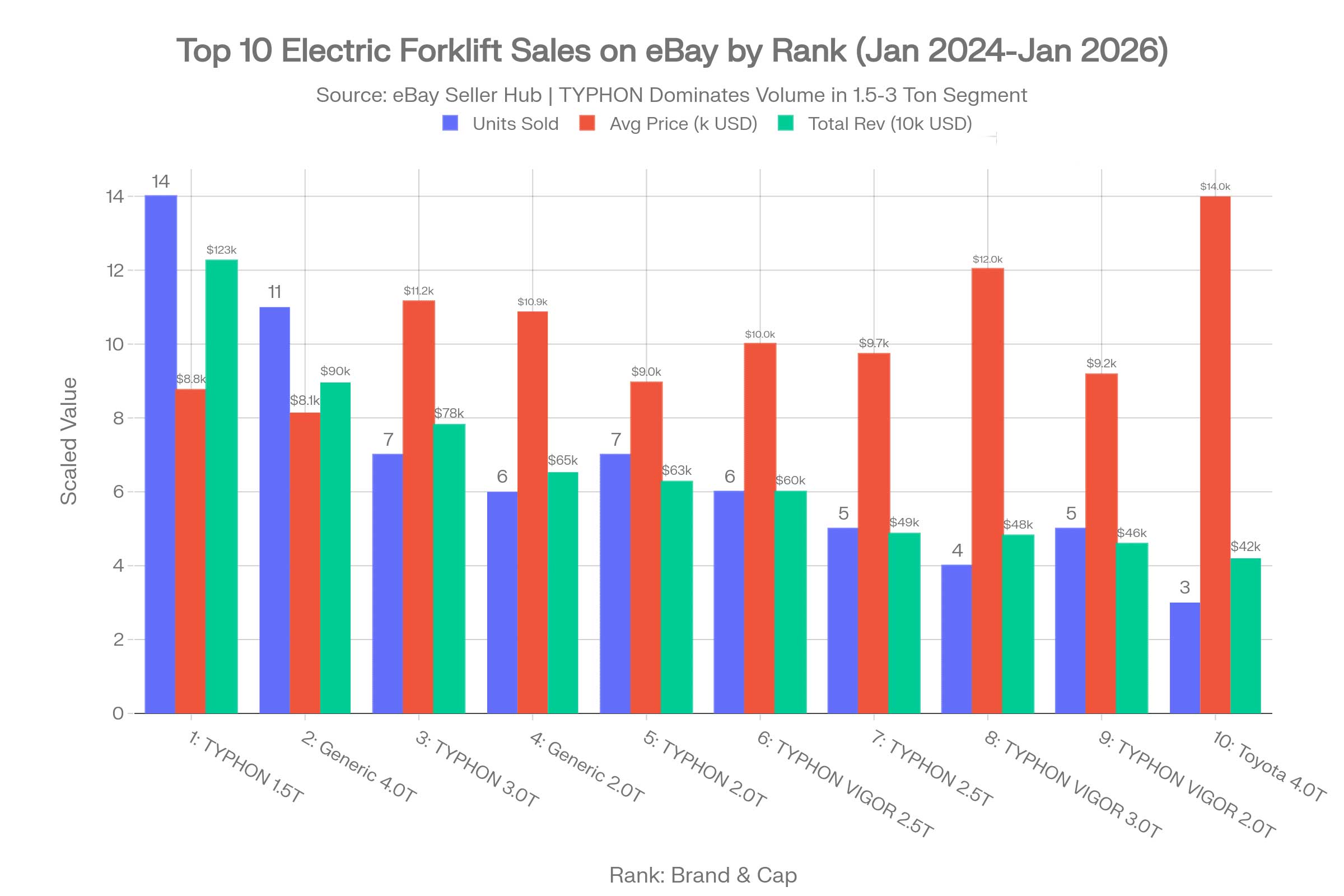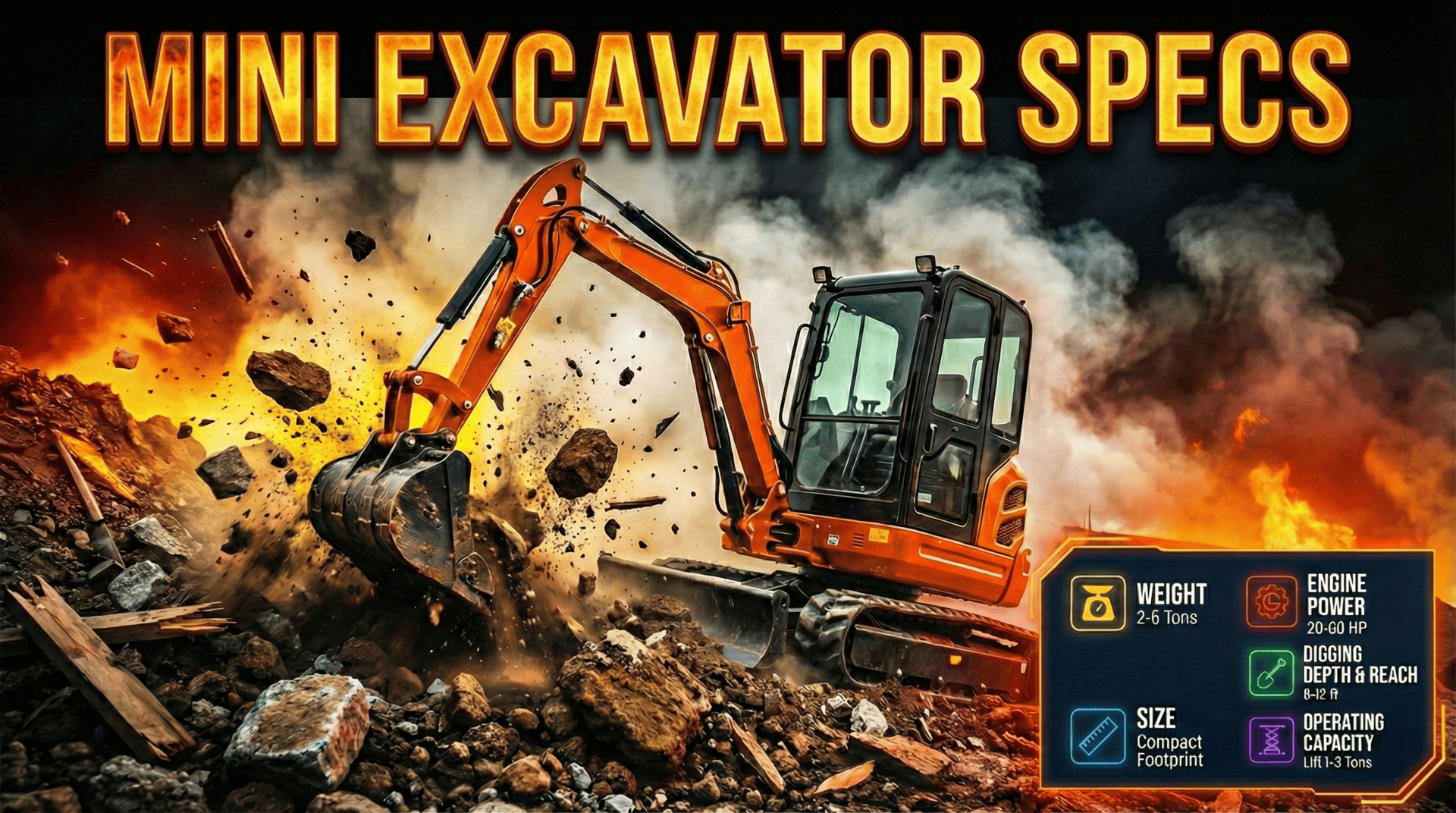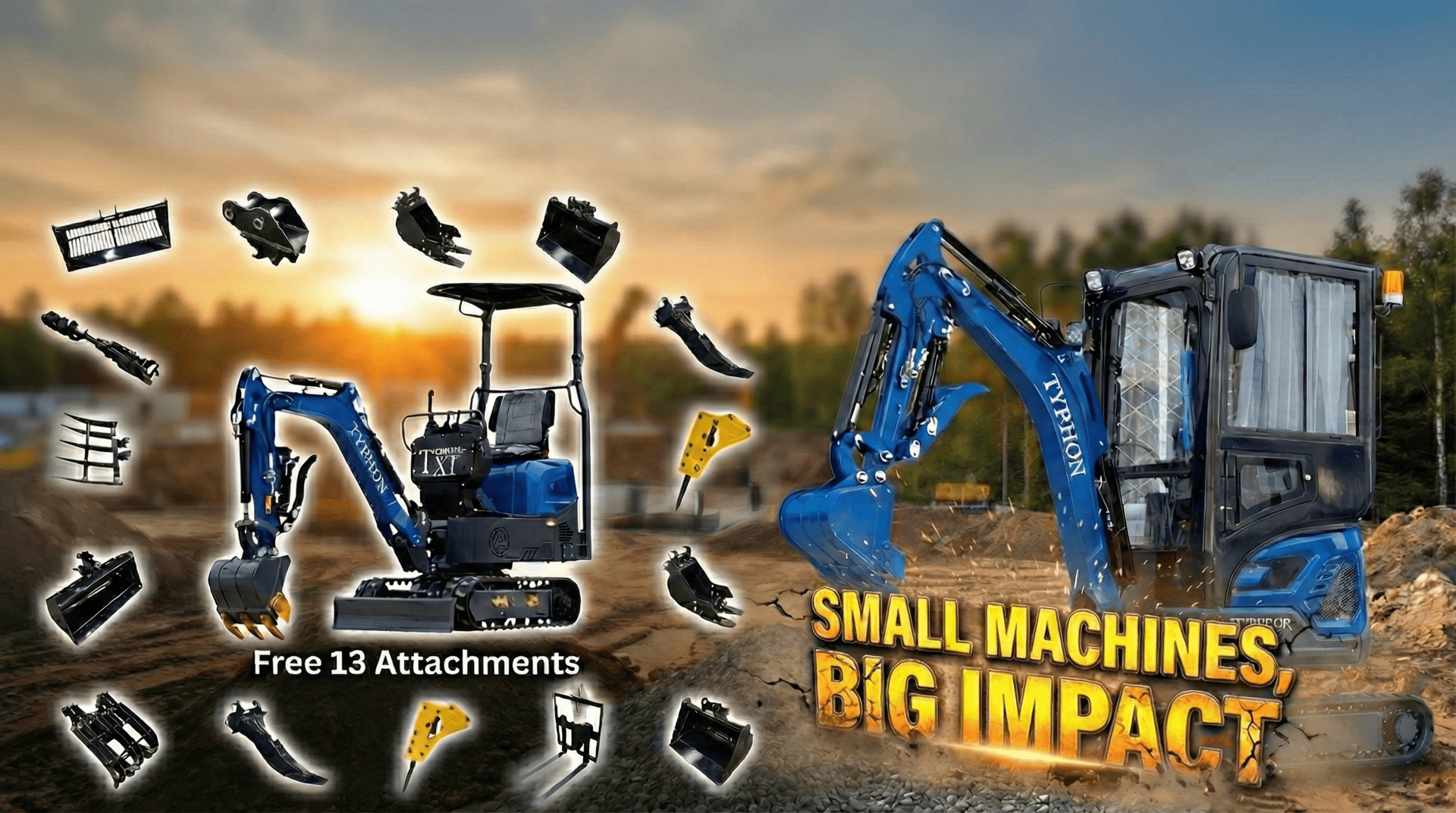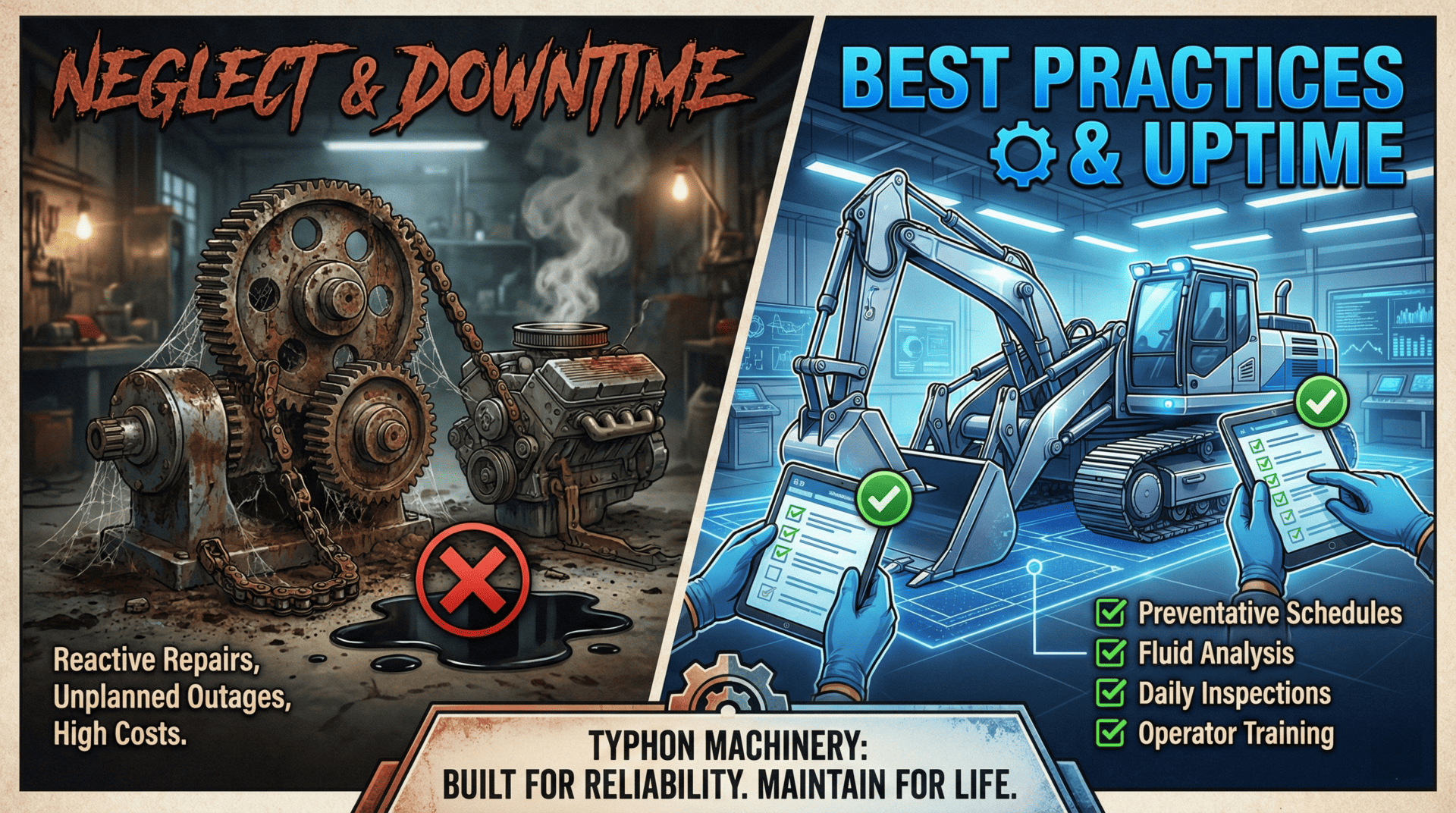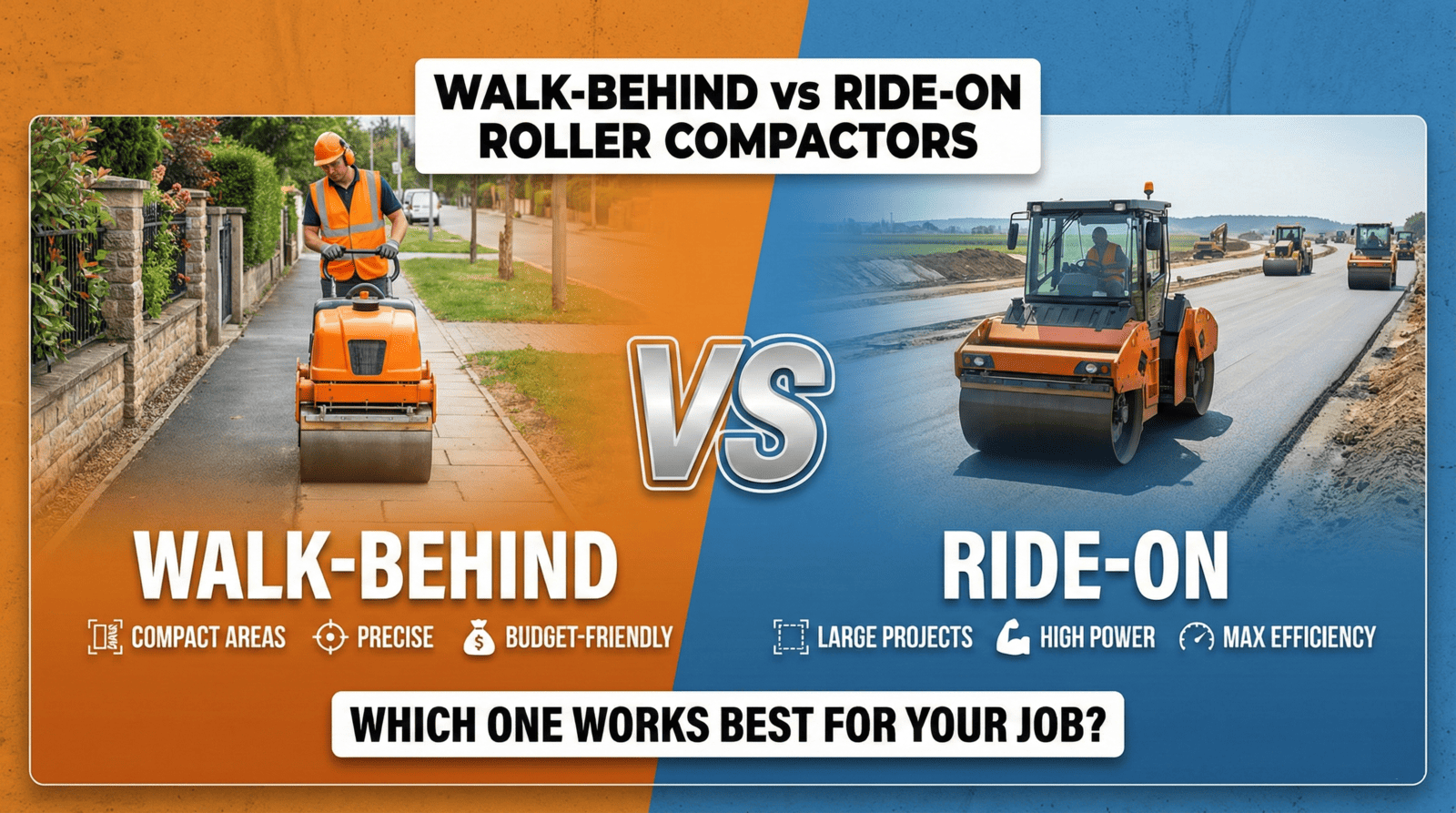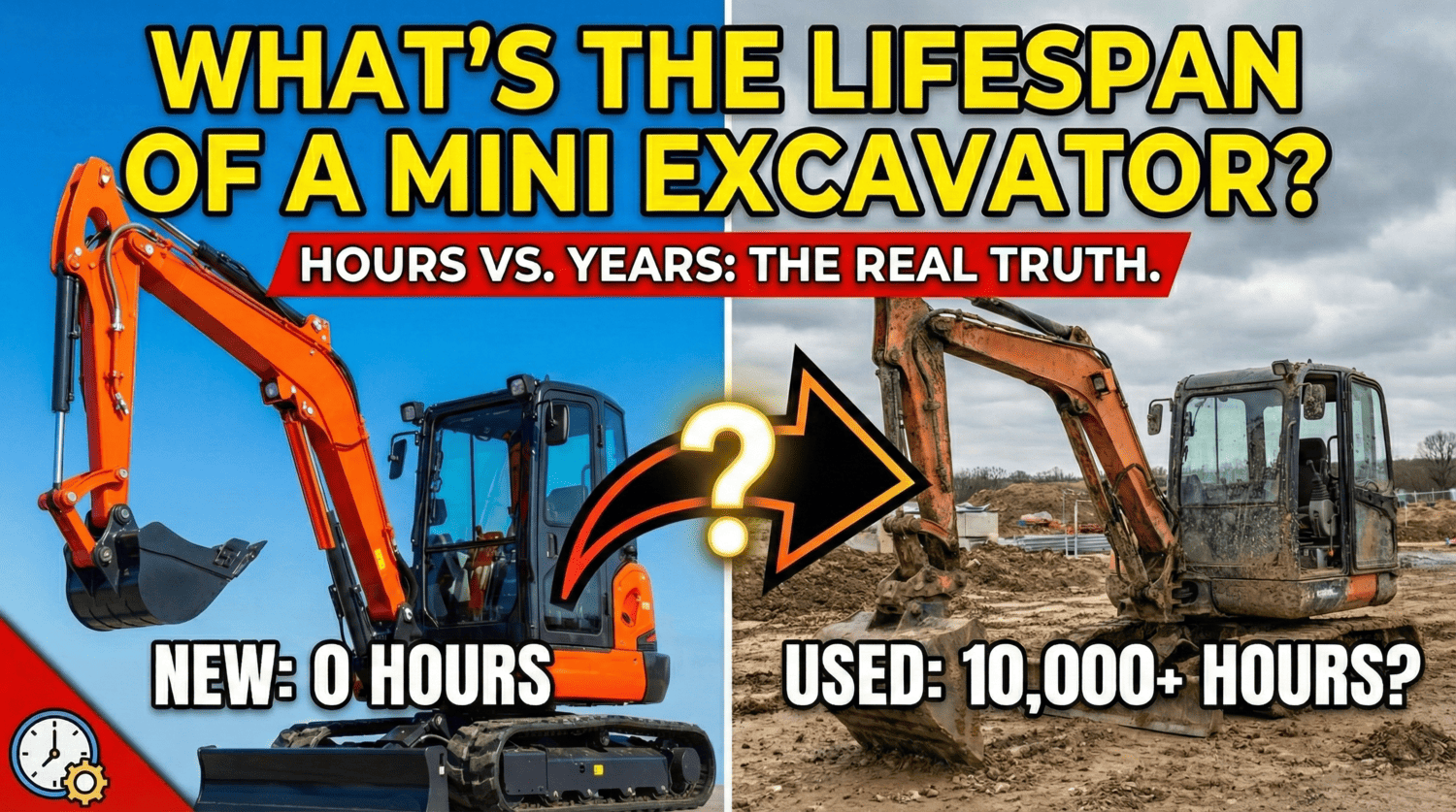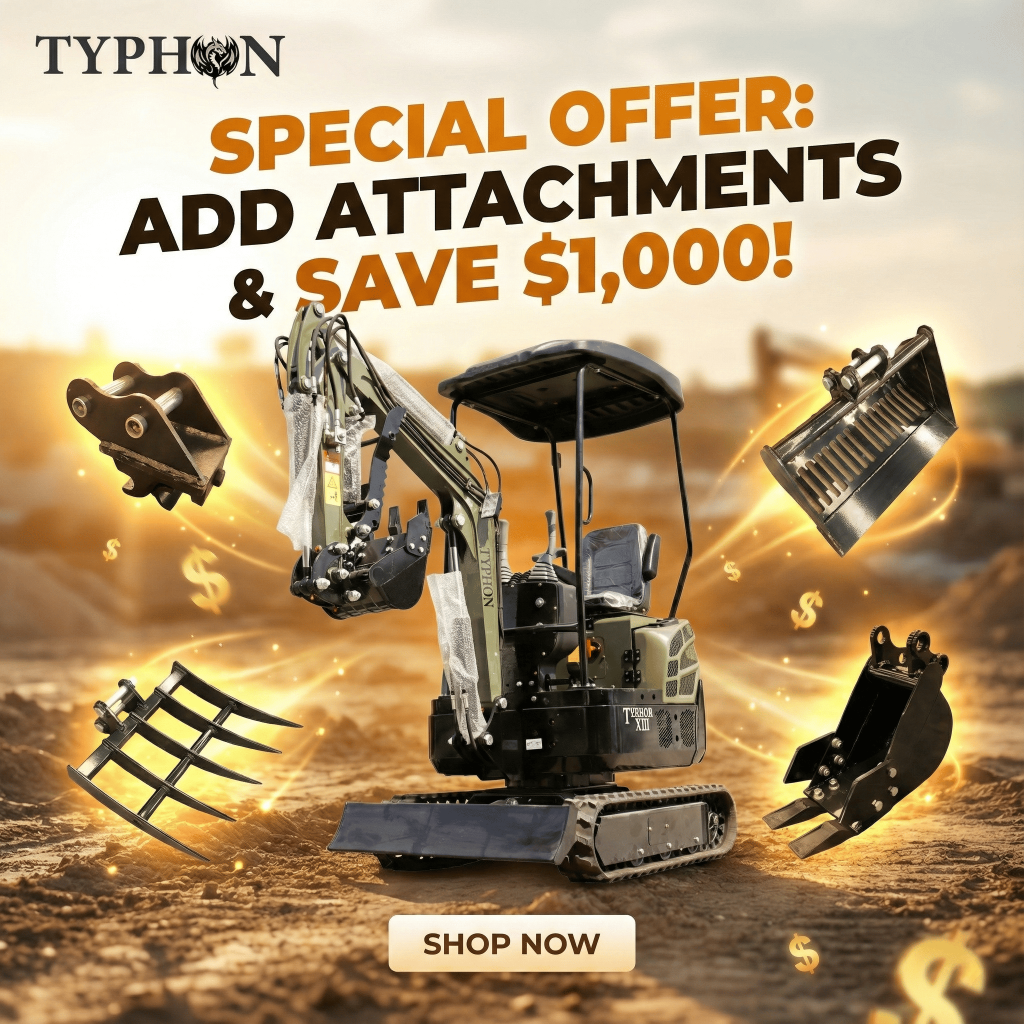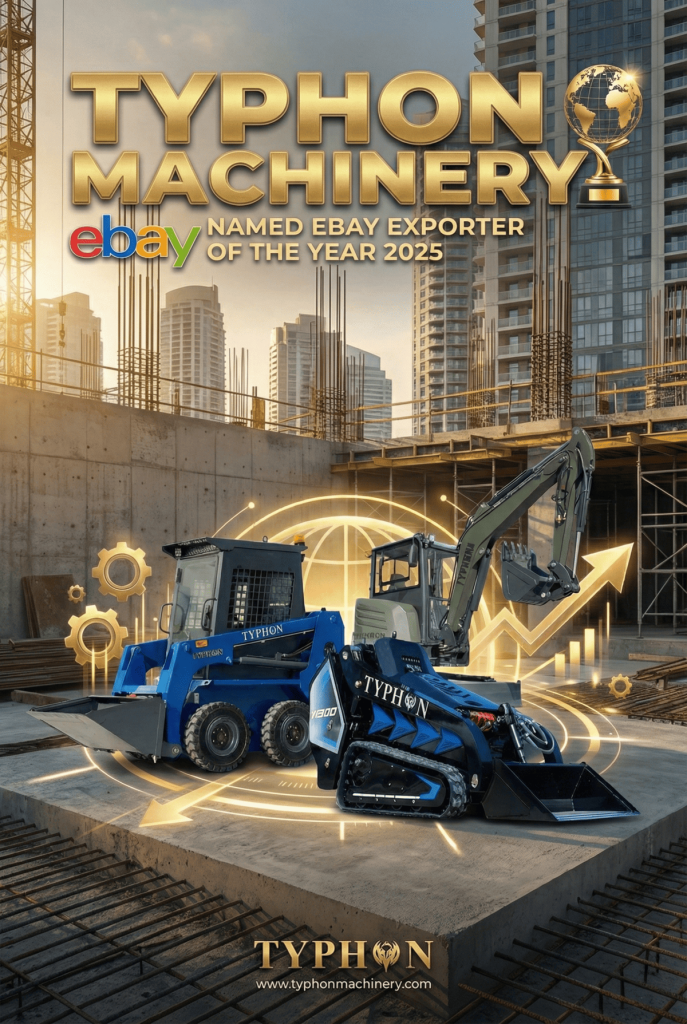Compact excavators are the ideal starting point for learning small-scale digging jobs, whether you like do-it-yourself projects, landscaping, or construction companies trying to improve their excavation techniques. These flexible machines greatly increase output by combining power, accuracy, and mobility. From their fundamental parts to selecting the correct model for your requirement, this extensive guide will walk you through everything you need to know about small excavators.
Mini Excavator Basics
What is a Compact Excavator?
Designed as scaled-down versions of conventional excavators, compact excavators—also known as mini excavators or mini diggers—pack a lot despite their tiny size. These machines are effective instruments for many jobs, as their main elements are those of their bigger counterparts. Their main constituents are the boom/arm, dipper/stick, bucket, cab, house, and rails or wheels.
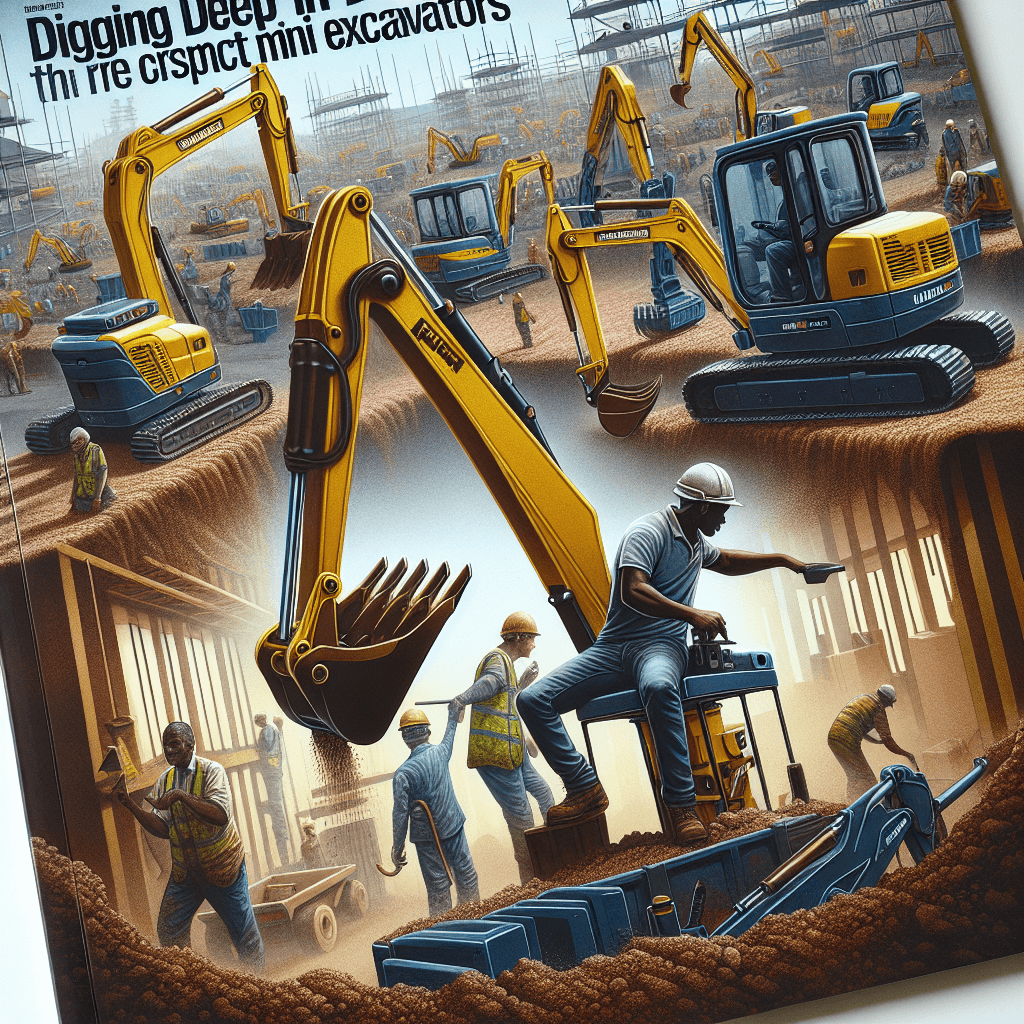
Built from high-strength steel for longevity, the primary robotic arm in charge of the digging is the boom/arm. Connecting the bucket to the boom, the dipper or stick regulates the bucket’s curl and dump movements. Interchangeable with many attachments, the bucket scoops and lifts materials. The operator’s compartment is the cab, which gives control over the machine. The home then lets one move 360 degrees on top of the core component. These excavators have wheels for quicker travel on hard surfaces or tracks for soft ground depending on the environment.
Compact Excavator Size Classes
Usually under 10,000 lbs, these machines are grouped according to their running weight. At around 2,000 pounds, the smaller versions are able to pass through regular doors. Their 12–24 inch bucket widths enable for exact digging in confined areas. From minor demolition to trenching and forest work, compact excavators are appropriate for many operations.
Common Applications
For many jobs, tiny size and accuracy of compact excavators make them perfect. Light demolition projects, landscaping, gardening, stump removal, and sewage or pipe repairs all find usage for them. Installations of pools and hot tubs, trench digging, cemetery excavation, forestry work, road building, and basic excavation chores are among the other uses. Professional builders and do-it-yourselfers alike choose them because of their adaptability.
Comparing Mini and Standard Excavators
Ideal for Smaller Spaces
Mini excavators are very helpful in confined areas where bigger equipment has difficult mobility. Whether you’re working in a garden, an urban area, or a small building site, their retractable tracks and smaller weights make them very flexible for many surroundings. For sensitive jobs, their smaller bucket widths enable accuracy without generating significant ground disturbance.
Easy to Transport
Mini excavators are portable unlike their full-sized cousins. Their simpler structure makes it easy to pull from one location to another. Mini excavators are a flexible choice for contractors that operate across many sites since they can be easily placed into trailers for transportation.
Longer Lifespan
Usually speaking, mini excavators have a longer lifetime than heavier regular ones. This is so because, usually, they are assigned lighter-duty jobs like trenching and little excavation, which reduces wear and tear. For jobs that do not call for the physical power of a standard-sized excavator, specifically, they provide outstanding value over time.
Job-Matched Efficiency
Efficiency of a project depends on the correct tools used. When matched to the rigors of a task, mini excavators excel. For example, compared to a full-sized model, a compact excavator hired for landscaping might be more affordable and efficient. This flexibility is the reason site managers should give small excavators some thought in suitable situations.
How to Choose the Right Model
Strategize Your Selection
Selecting the correct little excavator calls for careful evaluation of the project needs. Start by knowing exactly the particular function the excavator will serve on the project site. Operating weight, bucket size, ground clearance, attachments, and terrain suitability come under consideration here.
Key Factors to Consider
Consider an excavator’s working weight; bigger versions have higher lifting capability and stability. Additionally crucial is bucket size; bigger buckets carry more material every scoop, thereby improving efficiency. Working over loose soil and impediments depends on ground clearance; meanwhile, various attachments like augers, grapples, and hammers provide flexibility. Based on terrain type, also choose between tracks or wheels; next, use industry status and reviews to assess brand repute.
Leading Compact Excavator Brands
Caterpillar
Caterpillar, one of the world’s largest heavy equipment manufacturers, is renowned for its quality and reliability. The Cat 303, 305, and 308 are some of their compact models that professionals prefer for various applications.
Kubota
Kubota, a leading Japanese brand, offers a wide range of compact excavators known for performance and dependability. Popular models include the KX040, KX057, and 055, which cater to different project requirements.
John Deere
John Deere is a trusted American brand manufacturing compact excavators like the 50G, 60G, and 75G models. These machines are well-regarded for their durability and versatility.
Bobcat
Bobcat is a major player in the compact equipment market, with a lineup that includes the E10, E20, E26, and E35. Their machines offer excellent performance in tight spaces and demanding conditions.
Takeuchi
Takeuchi, a Japanese original equipment manufacturer (OEM), has a reputation for delivering performance and durability. Models like the TB216 and TB250 are popular choices for various excavation tasks.
Affordable TYPHON Alternatives
Quality Without the Premium Price
Although well-known companies like John Deere and Caterpillar dominate the industry, their high price tags can reflect By stressing basic functionality rather than flashy embellishments, TYPHON presents a convincing substitute with comparable performance and dependability at a fraction of the cost.
Trusted Construction and Engines
TYPHON compact excavators employ quality construction with high-strength steel and engines from trusted manufacturers like Briggs & Stratton, Perkins and Kubota. These engines ensure reliable performance and are well-suited for various applications.
Versatile Attachments
TYPHON excavators come equipped with essential attachments, including buckets, hydraulic hammers, and augers, enabling them to handle most digging tasks effectively. With offerings ranging from 1-5 metric tons, there’s an TYPHON compact excavator suited for any basic excavation need.
Safety Tips
Prioritize Operator Safety
Using small excavators calls for applying correct safety procedures. Wear steel-toe boots, high-visibility vests, hard helmets, and seatbelts always. Before running, clean mirrors and cameras to optimize vision; furthermore, try to prevent abrupt jerky motions that can throw the machine off-balance.
Load Capacity and Rider Safety
Try not to lift anything beyond the load capacity. Riders outside of the cab compartment should never be allowed as this can cause mishaps. Good operation guarantees a hazard-free and efficient workplace.
Compact Excavator FAQs
What’s the difference between a compact and full-sized excavator?
Compact excavators are those that have an operating weight of less than 10,000 pounds, making them smaller and easier to maneuver in confined spaces. Full-sized excavators are larger and heavier, making them suitable for extensive digging and lifting tasks.
Can a compact excavator use attachments besides a bucket?
Yes, compact excavators can use quick-change attachments like hydraulic hammers, trenchers, grapples, and augers instead of buckets. This versatility expands their capabilities and application range.
Are compact excavators good for landscaping projects?
Absolutely! Compact excavators excel in landscaping due to their small size, precision operation, and versatility with attachments. They are ideal for tasks like trenching, grading, hole digging, and more.
Conclusion
For both building firms and do-it-yourselfers as well as landscapers, compact excavators are essential equipment. For many projects, their adaptability, simplicity of transportation, and job-matched efficiency make them the perfect fit. When choosing the correct model, knowing their characteristics, uses, and safety issues helps you to make wise judgments.
TYPHON offers dependable alternatives to premium brands for customers looking for reasonably priced solutions without sacrificing performance. Whether you’re starting a landscaping project or doing minor demolition chores, small excavators provide the force and accuracy required to complete the work quickly.
Discover more about small excavators and get your ideas forward. Think about your requirements, make intelligent decisions, and personally see the advantages of these flexible devices.


